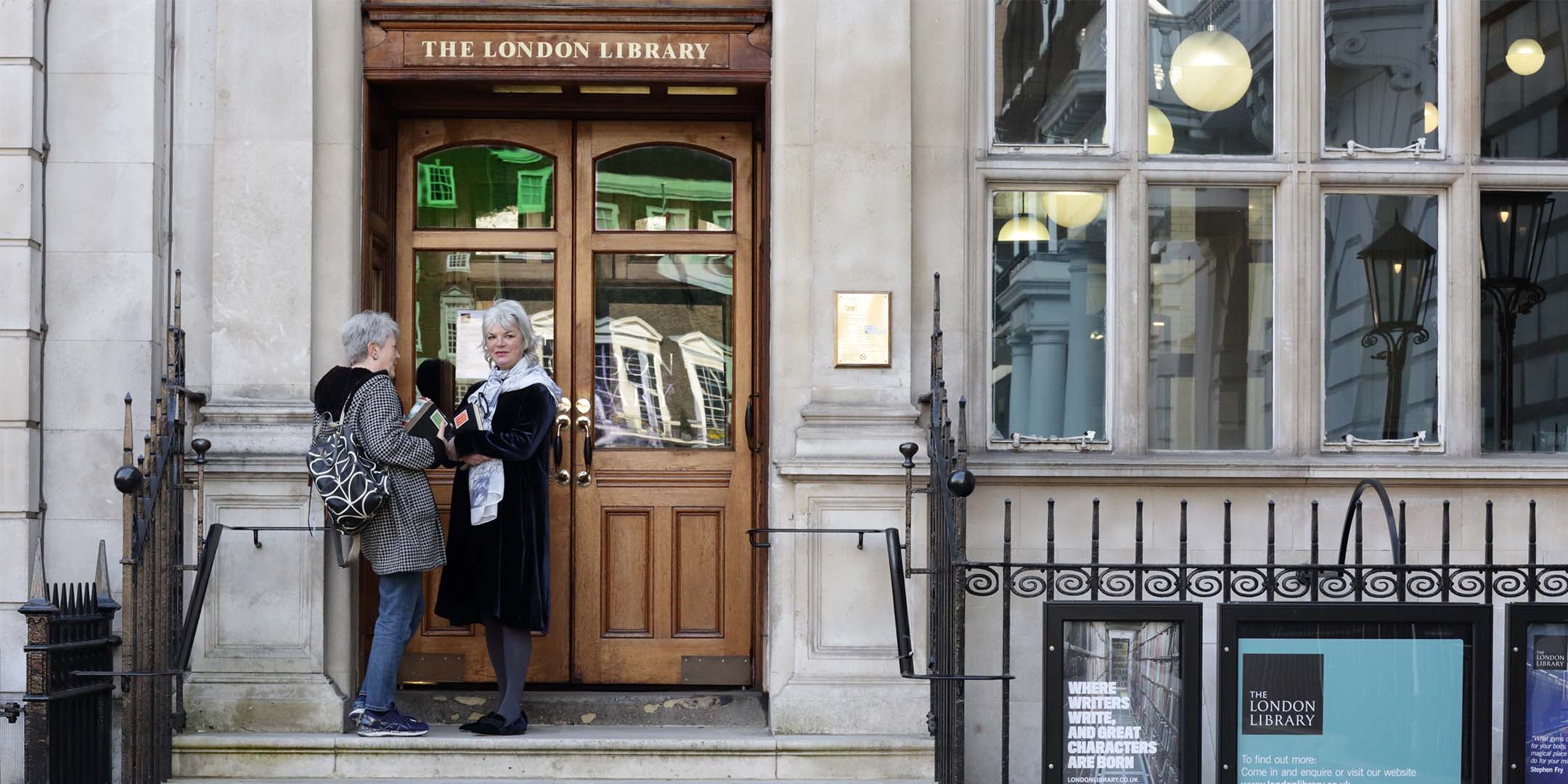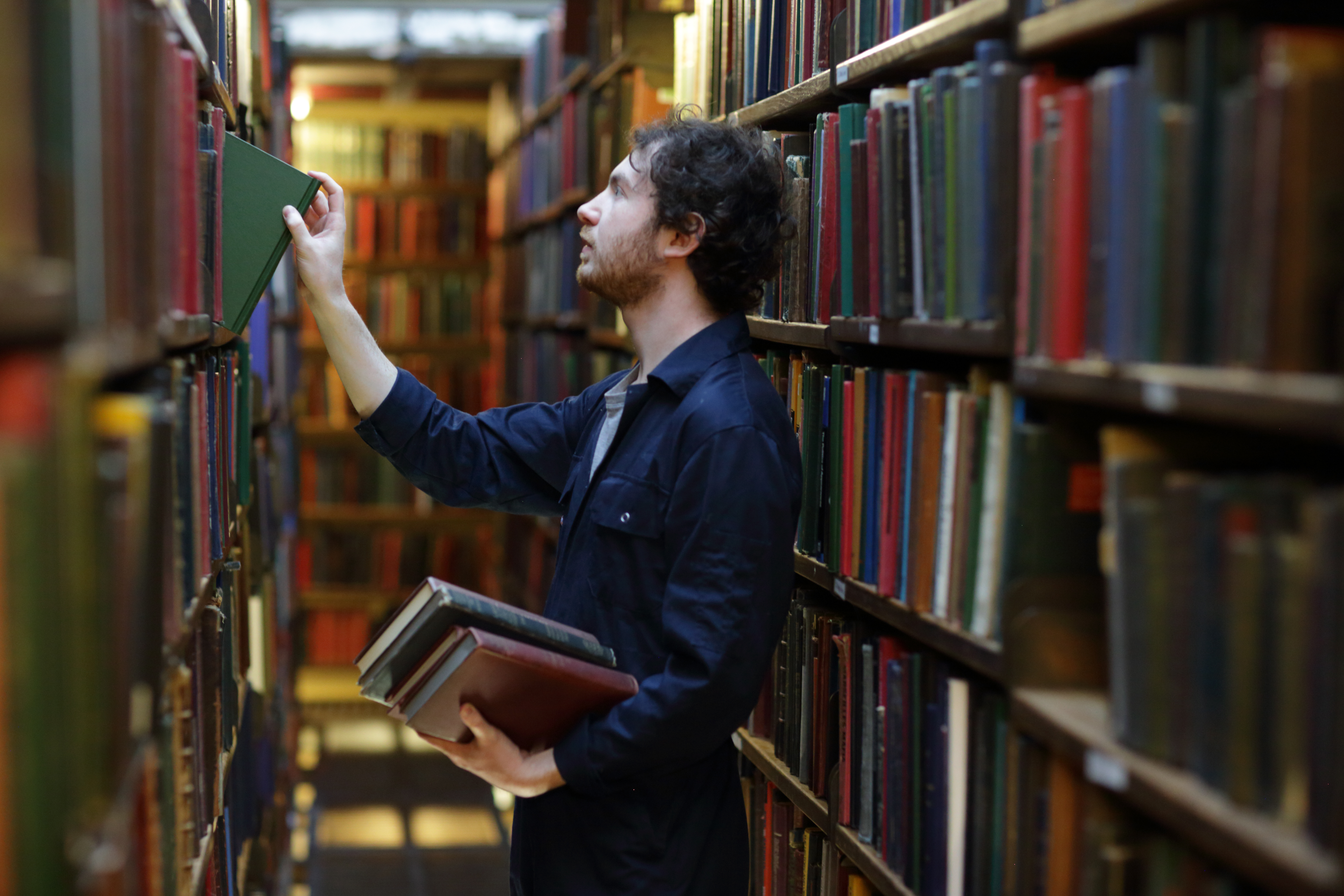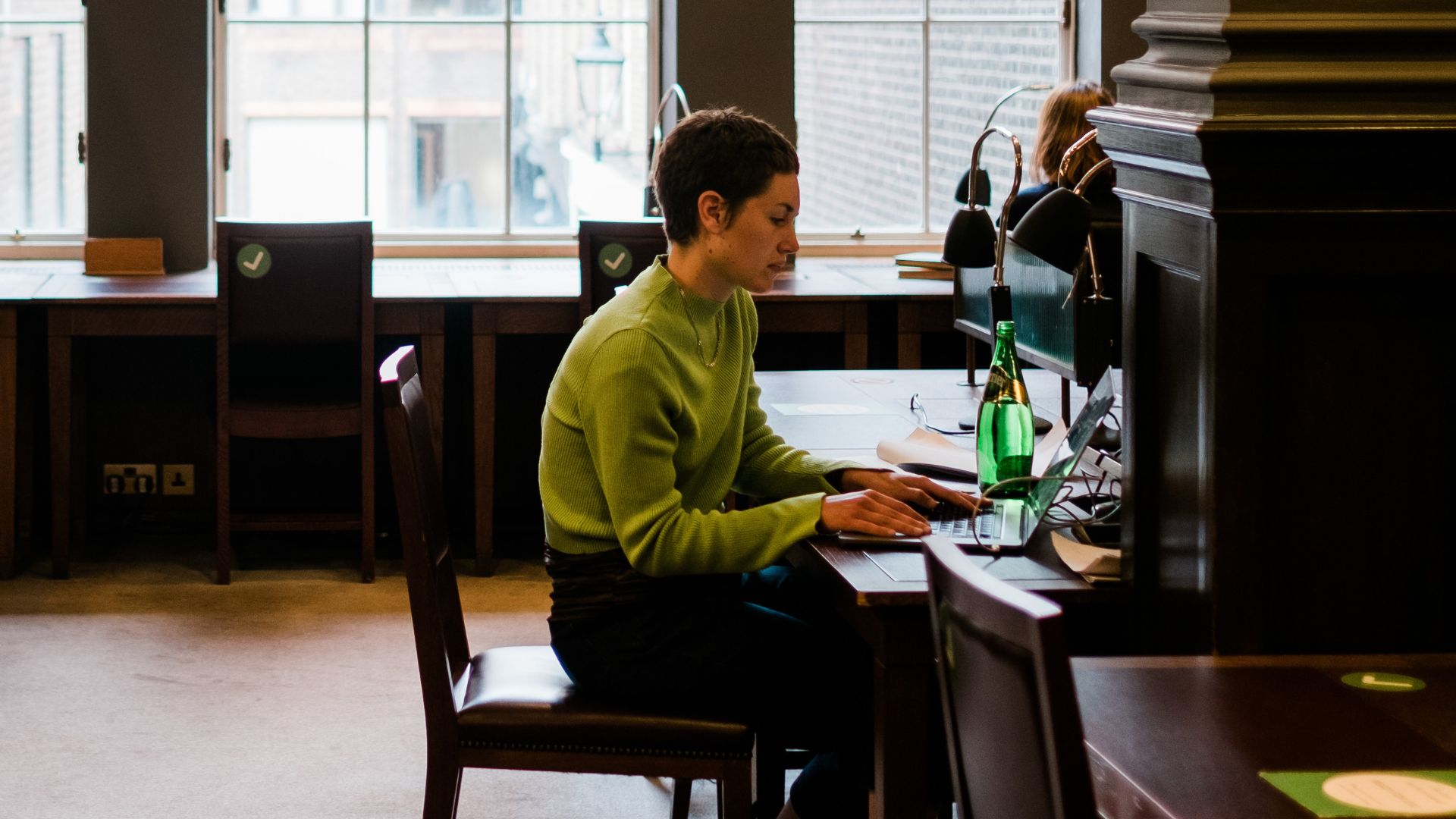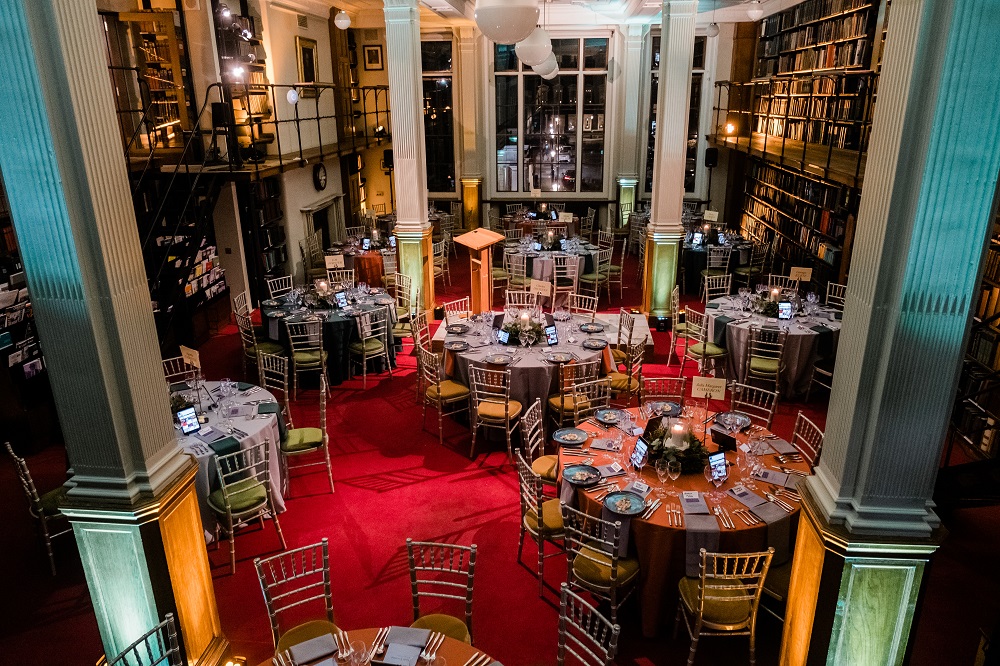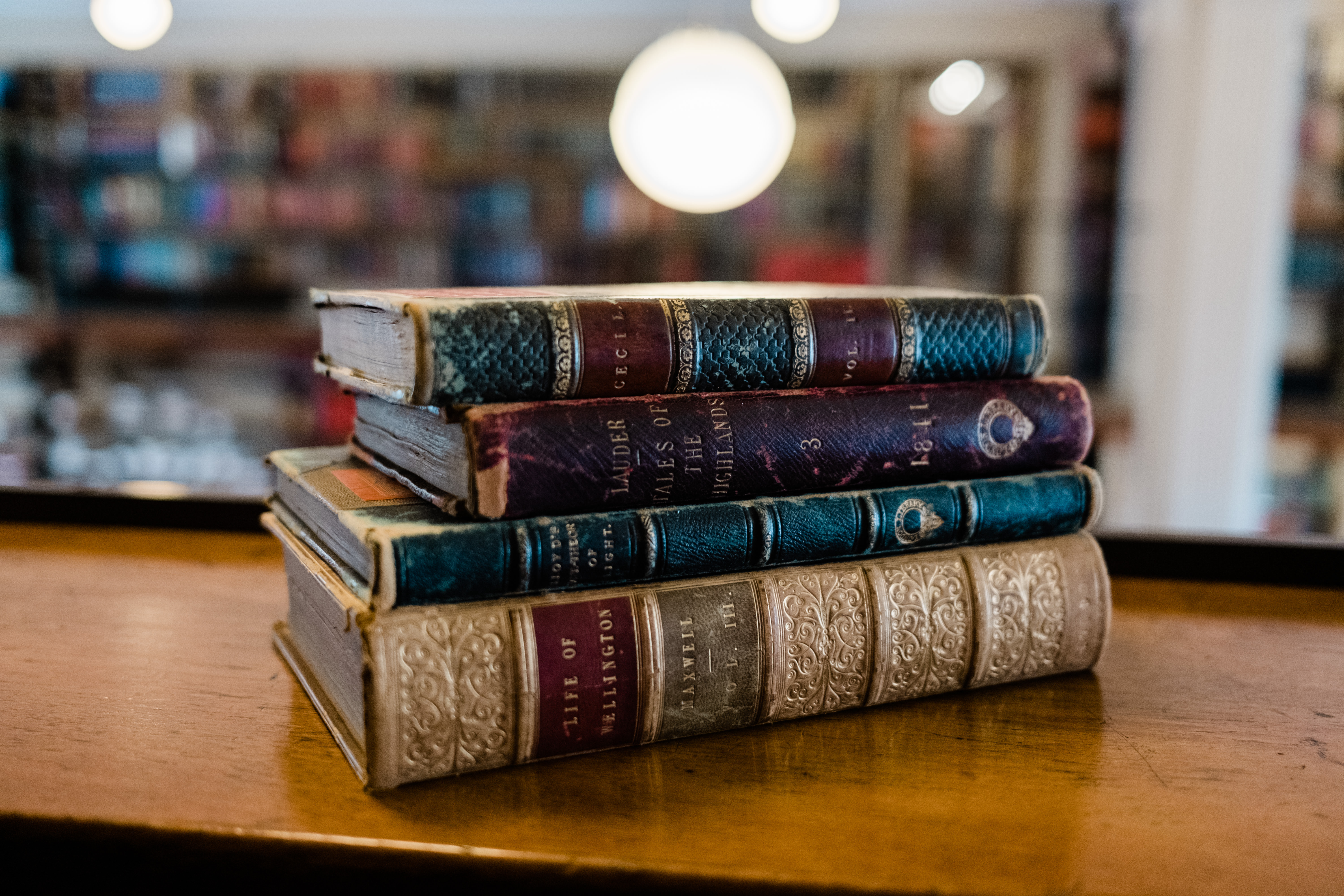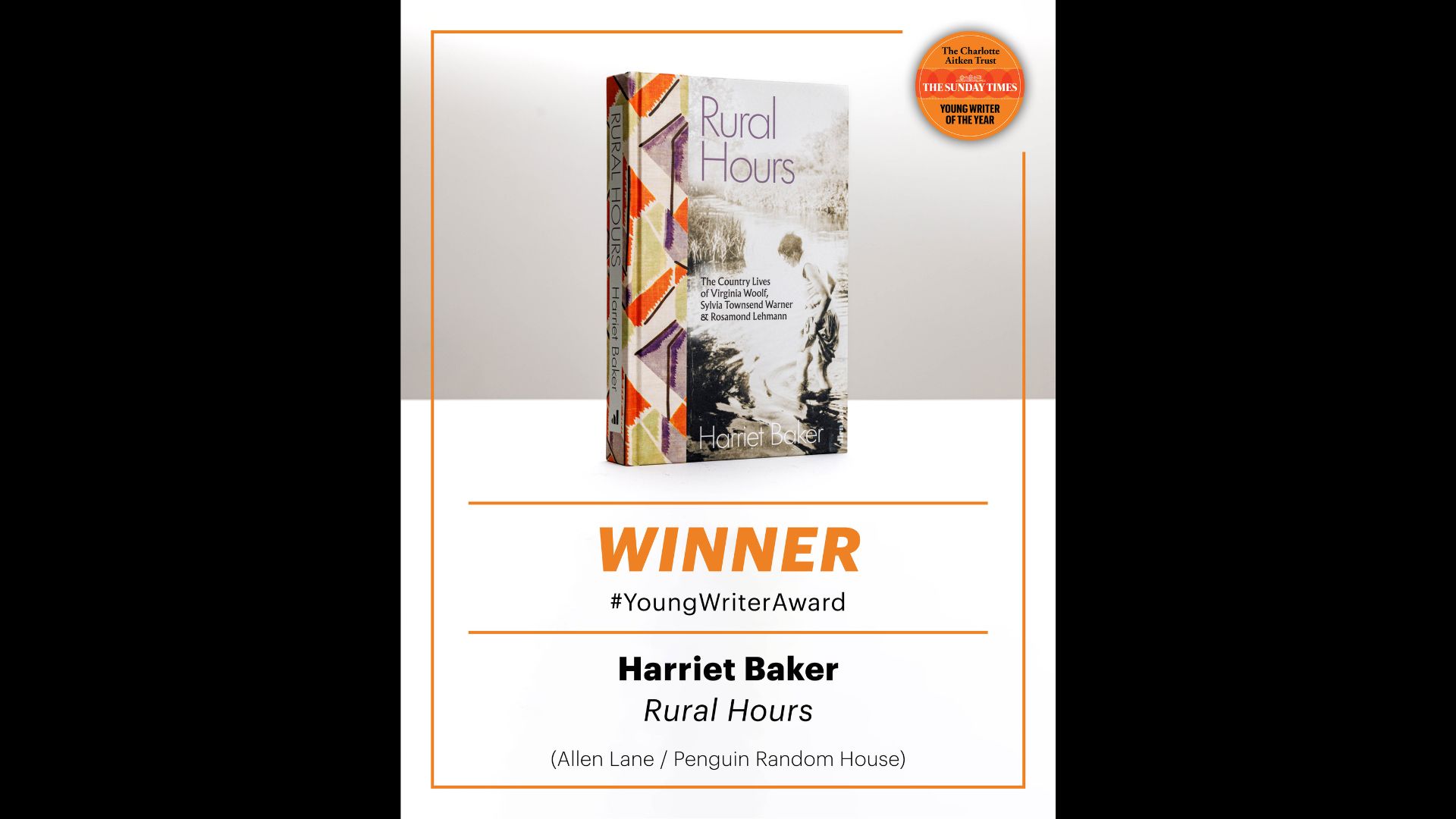By Dunia Garcia-Ontiveros, Head of Bibliographic Services at The London Library. Adapted from an article originally written for History Today.
In 1558 Mary Tudor’s brief Catholic reign came to an end. Just as English Protestants who had fled to Lutheran and Calvinist havens on the continent were beginning to return home, in Oxford and Cambridge Catholic scholars who refused to conform to the new Elizabethan order started packing their bags and planning their escape to France and the Spanish-ruled Low Countries. Although some were headed for the universities of Douai and Louvain many were scattered across Europe until an Oxford don, William Allen (1532-1594), founded an English college in Douai in 1568 where they could all continue to study together. With Papal approval and the financial support of Philip II of Spain the college began to attract more and more learned exiles. It was so successful that a subsidiary branch in Rheims had to be set up in 1576 to accommodate the great numbers of students enrolling. Allen fervently believed that England should become Catholic again and he used the college to train English priests in readiness for the happy day he was sure must come. But he did much more than that. He encouraged his graduates to travel back to England, despite the obvious danger, in order to fight the apathy and fear of the Catholics back home. A great number of the priests trained at the English college became missionaries and many of those suffered martyrdom after returning to England. These martyrs were the subjects of hero-worship back in Douai. The possibility of being revered after death or perhaps the allure of gaining a place in heaven through martyrdom may have played an important part in attracting new recruits. The London Library has a copy of Allen’s An apologie and true declaration of the institution and endevours of the two English Colleges, the one in Rome and the other now resident in Rhemes against certaine sinister informations given up against the same printed in 1581. In it he explains his reasons for founding the colleges. Ostensibly, this was meant an answer to his critics but it would also have served to explain himself to Catholics in England who may have disagreed with his methods.
Not content with his martyrs’ proselytizing and the powerful propaganda their deaths offered Allen also worked with the Spanish king and the pope on several plans for an invasion of England. It was probably this plotting that made him the target of several failed assassination attempts.
His strong connections with Spain were also the reason Allen and his students had to flee to Rheims when in 1578 Douai was taken over by Protestant forces. It was in Rheims that Allen’s most enduring work was completed.
The English Catholic version of the Scriptures known as the Douai or Rheims-Douay Bible was the work of Gregory Martin, one of the lecturers at the English College, but it was Allen’s brainchild and he was the one who raised the money to finance the work. Allen’s motivations for undertaking the project are not clear. Some say he did it because he wanted to be able to defend Catholics of the charge of keeping the Scriptures in inaccessible Latin, others say that, realising Protestant English Bibles were everywhere, he wanted to redress the balance by creating a Catholic version for English readers. Martin completed his translation from the Vulgate in 1580 and lived just long enough to see the New Testament printed in Rheims in 1582, which was as much as the funds could stretch to.
Allen ended his days as a cardinal in Rome where he died in 1594, surrounded by powerful friends but impoverished and disheartened after the defeat of the Spanish Armada. He did not live to see his Old Testament printed in Douai (the college had returned there in 1593) in 1609 and 1610 nor did he live to learn of his New Testament’s influence on the King James Bible of 1611. We will never know whether he would he have seen the absorption of his Catholic rendering of the Bible by a new Protestant version as victory of sorts or as the final insult.

